CBD vs CBN: Comparing Non-Intoxicating Cannabinoids for Sleep

Tossing. Turning. Clock watching. If falling asleep feels like a nightly battle, and you'd rather not rely on heavy sedatives or intoxicating THC, you're not alone. Millions of people struggle with sleep disorders or occasional insomnia, with up to one in three Americans reporting sleep issues, but finding a natural, non-intoxicating solution can feel like searching for a needle in a haystack.
That's where CBD and CBN come into play.
Both are non-intoxicating cannabinoids that come from the cannabis plant, and while they share some calming properties, their sleep-supporting benefits stem from very different mechanisms.
Whether you're looking to unwind after a long day, calm racing thoughts, or support deeper, more restful sleep, understanding the difference between CBN vs. CBD could help you make an informed, targeted choice.
This guide unpacks what makes each cannabinoid unique, how they interact with your body, and which one might be the missing piece in your nighttime routine.
Key Takeaways
-
CBD and CBN are both non-intoxicating cannabinoids with unique effects that support better sleep in different ways.
-
CBD is best suited for addressing anxiety, pain, and stress-related sleep disruptions.
-
CBN works more directly to promote relaxation and help with sleep onset.
-
Used together, CBD and CBN support both falling asleep and staying asleep.
-
Finding the right dose and timing is essential for maximizing the sleep benefits of either cannabinoid.
-
CBN is typically more fast-acting, while CBD has longer-lasting effects.
-
Many users report the most consistent improvements when combining CBD and CBN.
Understanding the Basics: What Are CBD and CBN?
Before we look at how these cannabinoids support better sleep, it's important to first understand what CBD and CBN are, how they're produced, and what makes them different.
Cannabidiol (CBD)
CBD is one of the most abundant and well-known cannabinoids found in hemp and cannabis plants.
Unlike THC, CBD does not produce intoxicating effects. Instead, it interacts indirectly with the body's endocannabinoid system (ECS), primarily by influencing receptors such as 5-HT1A (serotonin) and modulating enzymes that regulate endocannabinoid levels.
This makes CBD useful for supporting a wide range of physiological processes, including stress management, inflammation control, and overall relaxation.
CBD is commonly available in oils, capsules, gummies, beverages, and topical products. Because it's federally legal in hemp-derived form (with less than 0.3% THC in the U.S.), it is widely accessible and often used as a daily wellness supplement.
Cannabinol (CBN)
CBN, by contrast, has a very different origin and purpose. CBN is not produced in significant quantities by fresh cannabis plants. Instead, it forms as THC naturally degrades over time due to exposure to heat, light, and oxygen.
This is why aged cannabis tends to contain more CBN than fresh flower.
While technically a breakdown product of THC, CBN only retains about 10% of its psychoactivity.
At normal doses, CBN is considered non-intoxicating, though it may cause mild sedation in some people. It is typically available in tinctures, gummies, and blended sleep products, often paired with CBD or melatonin for added effect.
At Mellow Fellow, we've formulated products containing both cannabinoids, and customer feedback consistently highlights their distinct effects.
Our Rest Blend Tincture combines CBD, CBN, and CBG for sleep-promoting benefits in an easy-to-consume manner. All three of these cannabinoids can promote better sleep, so combining them into one convenient tincture amplifies these benefits.
The Science Behind How CBD and CBN Affect Sleep
Despite both being cannabinoids, CBD and CBN influence sleep through notably different mechanisms. Understanding these differences is key to selecting the right option for your specific sleep needs.
How CBD Influences Sleep
CBD's influence on sleep is indirect but meaningful. Rather than sedating you in a pharmaceutical sense, it supports sleep by addressing the underlying issues that prevent rest. Here's how it works.
Easing Anxiety and Restlessness
One of the most common barriers to falling asleep is a restless mind. Racing thoughts, tension, and anxious feelings can all delay the onset of sleep or cause frequent nighttime awakenings.
CBD interacts with serotonin receptors in the brain, helping to promote a sense of calm and reduce mental overactivity.
For many people, this results in a quieter mind at bedtime, making it easier to settle down and drift off naturally. While not a sedative, CBD's calming influence on the nervous system can feel like a gentle nudge toward relaxation.
-
Tip: Taking CBD about 30 to 60 minutes before bed allows it to align with your wind-down routine and promote a smoother mental transition into sleep.
Supporting Stress Hormone Balance
Chronic stress and overwork often lead to elevated levels of cortisol, the body's primary stress hormone. When cortisol remains high into the evening, it signals the brain to stay alert instead of allowing the body to shift into rest mode.
CBD may help support more natural cortisol patterns, acting as a kind of internal "reset." This shift makes it easier for your body to enter its natural sleep rhythm, particularly if you struggle with late-night alertness or second winds.
-
Tip: If you find yourself waking up frequently during the night or having trouble falling asleep despite feeling tired, consider incorporating CBD into your evening routine to help re-establish internal balance.
Relieving Discomfort That Disrupts Sleep
Physical discomfort, whether caused by inflammation, muscle tension, or lingering aches, can make it hard to get comfortable and stay asleep.
CBD is widely used for its anti-inflammatory properties, and many find that it helps ease nighttime discomfort without grogginess or harsh side effects.
CBD sets the stage for deeper, uninterrupted sleep by relaxing the body and easing tension. This effect is particularly helpful for people who deal with pain-sensitive conditions, restless legs, or general body fatigue.
Our customers using our Wellness Softgel Capsules frequently report improved sleep quality related to reduced discomfort. These contain 1500mg of full-spectrum CBD, CBN, and CBG to promote a more restful sleep.
-
Tip: Combining CBD with other evening self-care practices, such as a warm bath or light stretching, can help maximize its effects on physical relaxation.
Encouraging a Smooth Transition Into Sleep
Many users report not a sudden wave of drowsiness but rather a subtle easing of mental chatter and physical tension. This gradual unwinding helps foster conditions where sleep can happen naturally without being forced.
This mild approach can be ideal for those who prefer to maintain a clear head and avoid next-morning grogginess. Instead of feeling knocked out, users describe simply feeling ready for bed, both mentally and physically settled.
Many of our customers using CBD products like our Rest Blend gummies report that they don't necessarily feel an immediate drowsiness but rather experience a gradual unwinding of mental activity and physical tension.
-
Tip: CBD works best when paired with healthy sleep habits. Try turning off screens early, dimming lights, and keeping a consistent bedtime to reinforce the effects.
How CBN Influences Sleep
CBN, or cannabinol, offers a different kind of sleep support than CBD. Where CBD often helps address the causes of sleep disruption, CBN appears to act more directly on the body's sleep mechanisms, making it especially helpful for those who struggle to fall asleep in the first place.
Supporting Natural Sedation
Unlike CBD, CBN interacts more directly with the endocannabinoid system, particularly the CB1 receptors. These are the same receptors that THC binds to, but CBN does so with much lower intensity, meaning it can promote physical relaxation without intoxication.
This subtle receptor activity may explain why so many people describe CBN's effects as more body-oriented and noticeably calming. Rather than gradually easing you toward sleep, CBN can feel more like a soft nudge into a restful state. Studies show that doses upwards of 30mg of CBN are effective for promoting more restful sleep.
-
Tip: CBN may work best when taken about 30 to 45 minutes before bedtime, especially if falling asleep is your primary challenge.
Creating a Noticeable Relaxation Response
People turn to CBN because of its more "felt" effect. While CBD's benefits can be more gradual, CBN tends to produce a more immediate sense of calm and heaviness in the body. This makes it particularly useful for those with overstimulation at night, both mental and physical.
Many people report that after taking CBN, their muscles feel less tense, and they experience a deeper sense of readiness for bed.
Our Illuminate Blend Capsules, which incorporate precise amounts of CBN, often receive feedback about this pleasant body relaxation effect.
-
Tip: If you tend to toss and turn at night, consider incorporating CBN into a wind-down routine that includes dim lighting, screen-free time, and quiet activities like reading or stretching.
Amplifying Effects Through Terpene Synergy
CBN often works better when combined with other calming compounds found in the hemp plant, particularly sleep-focused terpenes like myrcene, linalool, and beta-caryophyllene.
These natural plant oils can work in tandem with CBN to promote deeper relaxation and more reliable sleep onset.
This is why many people find full-spectrum or broad-spectrum CBN blends more effective than products made with pure CBN alone.
Our formulation team pays careful attention to these potential synergies when creating products like our Rest Blend Wellness Gummies.
-
Tip: When shopping for CBN products, look for those that include naturally calming terpenes or are labeled as full-spectrum to take full advantage of this synergy.
Fast-Acting Support for Sleep Onset
CBN's effects tend to come on faster than CBD's, with many users reporting relaxation within 30 minutes of use. This makes it a practical solution for people who have difficulty falling asleep but don't necessarily wake up during the night.
Its relatively short onset window also makes it easier to time around your bedtime routine without needing to prepare hours in advance.
Our product development team has observed that formulations containing CBN, such as our Dream Blend products, tend to create more pronounced relaxation effects than CBD alone, making them particularly popular among customers with persistent sleep difficulties. The best CBN products for sleep often combine a variety of cannabinoids.
-
Tip: Keep your CBN dose consistent each night for a week to gauge your body's response. Many users report stronger results after a few nights of regular use.
Comparing Key Attributes of CBD and CBN for Sleep
To help you make an informed decision, let's directly compare these cannabinoids across several important factors:
| Factor | CBD | CBN |
| Onset Time | Typically 30 to 60 minutes | Often 30 to 45 minutes |
| Duration | 4 to 6 hours when taken orally | 4 to 5 hours when taken orally |
| Primary Sleep Benefit | Addresses underlying causes (anxiety, pain) | More direct relaxation and sedative effects |
| Daytime Drowsiness Risk | Minimal at standard doses | Moderate, especially at higher doses |
| Research Depth | Extensive human studies | Limited human studies, more anecdotal evidence |
| Potential Side Effects | Generally minimal; may include dry mouth, changes in appetite | Similar to CBD; drowsiness more common |
| Regulatory Status | Federally legal when hemp-derived | Federally legal when hemp-derived |
This comparison highlights that neither cannabinoid is universally "better" for sleep, as each has distinct advantages depending on your specific sleep challenges.
Many of our customers who previously tried CBN for anxiety find it particularly effective when anxiety manifests physically as tension, while CBD often works better for those whose sleep issues stem from racing thoughts or generalized anxiety.
Who Might Benefit Most from CBD for Sleep?
Based on both research and extensive customer feedback, CBD may be more suitable for those whose sleep issues stem from specific underlying factors rather than direct sleep onset problems.

Anxiety and Racing Thoughts
People experiencing anxiety and racing thoughts at bedtime often find remarkable relief with CBD. The cannabinoid's documented anxiolytic properties can help quiet an overactive mind without forcing sleep, allowing for a more natural transition into restfulness.
Our Elevate Blend gummies customers frequently mention this "mental unwinding" effect that doesn't feel forced or chemically induced. Packed with full-spectrum CBD, CBG, CBC, and more, these gummies are perfect for promoting sleep.
Chronic Pain
Those with chronic pain conditions that disrupt sleep represent another group that typically responds well to CBD.
Rather than masking pain like conventional sleep aids, CBD addresses inflammation at its source, potentially enabling more comfortable and sustained sleep throughout the night.
We've received particularly positive feedback from customers using our Happy Blend Capsules who report improved sleep quality related to better physical comfort.
Irregular Sleep Schedules
Shift workers or those experiencing jet lag often struggle with irregular sleep schedules that disrupt normal circadian rhythms.
CBD might help regulate sleep-wake cycles for these individuals by working with the body's endocannabinoid system, which plays a role in circadian rhythm regulation.
The ability to use CBD at consistent times regardless of shifting schedules may help maintain sleep consistency even when external factors are changing.
Supporting REM Sleep
Those with REM sleep behavior disorder, which affects sleep quality and can be dangerous due to physical acting out of dreams, may find CBD particularly beneficial.
Preliminary research suggests CBD may help normalize REM sleep phases, potentially benefiting those with this condition and improving overall sleep architecture.
Daytime Use Without Sedation
Another advantage for many users is that CBD's non-sedating nature makes it suitable for daytime use without significant drowsiness.
This allows for consistent dosing throughout the day that may improve nighttime sleep quality while maintaining daytime productivity. Many customers using our CBD tinctures report this flexibility as a major advantage.
One customer using our wellness products shared: "I take CBD about an hour before bed and find I'm not necessarily knocked out, but my mind stops racing and I naturally drift off without that 'drugged' feeling I get from sleep aids. I wake up feeling refreshed rather than groggy."
Who Might Benefit Most from CBN for Sleep?
CBN offers a different sleep-support profile that makes it particularly well-suited for specific sleep challenges that might not respond adequately to CBD alone.
Aiding With Sleep Onset
People who struggle primarily with difficulty falling asleep often find CBN's more direct relaxation properties especially helpful.
While CBD excels at addressing underlying causes of sleep disruption, CBN appears to more directly promote the transition into sleep for many users.
Our Dream Blend products frequently receive feedback specifically about this sleep-onset benefit, as they are precisely formulated with sleep-promoting cannabinoids.
Reducing Physical Restlessness
Physical restlessness at bedtime represents another sleep challenge where CBN often shines. Many users report that CBN helps create a pleasant heaviness or relaxation in the body that reduces tossing and turning.
This physical calming effect appears distinct from CBD's more mentally-focused benefits. Customers using our Rest Blend wellness gummies, which contain CBN, CBD, and CBG, often mention this bodily relaxation as a key benefit.
Better Deep Sleep Phases
Some users report that CBN seems to help extend deep sleep phases, potentially improving sleep quality beyond just falling asleep faster.
While more research is needed to confirm this effect scientifically, consistent user reports suggest CBN may influence sleep architecture in beneficial ways.
Our formulation specialists pay careful attention to these reported benefits when developing products like our Rest Blend Softgel Capsules.
Complementing Other Cannabinoids
Those who haven't responded adequately to CBD alone may find CBN provides the additional relaxation they need.
We've observed that some people appear to be more physiologically responsive to one cannabinoid than another, likely due to individual variations in endocannabinoid systems.
This is why our Wellness Collection includes various cannabinoid combinations, to help customers find their optimal match.
For those who already use THC products, CBN can complement these effects without significantly increasing intoxication.
The Power of Combining CBD and CBN for Sleep
Pairing CBD and CBN offers a balanced, multi-pronged approach to sleep that addresses both mental and physical barriers to rest. While each cannabinoid has its own strengths, their combined use often leads to more complete and consistent sleep support.
A Complementary Relationship
CBD primarily supports sleep by addressing underlying issues such as anxiety, elevated stress hormones, and discomfort. It promotes a state of calm that prepares the mind for rest without causing sedation.
CBN, on the other hand, offers more direct relaxation effects. Many people find it helps them physically unwind and fall asleep more easily, especially when struggling with initial sleep onset.
Used together, CBD and CBN support both the mental stillness and physical relaxation necessary for sleep. This dual mechanism can make it easier to fall asleep and stay asleep through the night.
Supporting Sleep Onset and Maintenance
One of the most common sleep challenges is difficulty both falling asleep and staying asleep. CBN, with its faster onset of effects, may help quiet the body and mind quickly.
CBD, with its longer duration of action, may continue working through the night to help sustain sleep and reduce disturbances.
This layered effect provides round-the-clock support: calming the mind at bedtime and supporting sleep architecture through the early morning hours.
Potential for Lower Doses
When used in combination, some people find they need smaller amounts of each cannabinoid to achieve results. This can help minimize the risk of side effects that might occur when using higher doses of CBD or CBN on their own.
Related Products
The ability to fine-tune ratios allows users to customize their experience—some prefer more CBN for faster relaxation, while others may focus on CBD to manage anxiety-driven sleep disruption.
The Role of the Entourage Effect
The theory behind the entourage effect suggests that cannabinoids and other natural compounds work best in harmony.
By combining CBD and CBN, users may benefit from this synergistic interaction, which could amplify the effectiveness of both cannabinoids while smoothing out any undesired effects.
Adding in supportive elements like calming terpenes and minor cannabinoids may further refine the effect, contributing to more restorative and natural-feeling sleep.
Optimal Dosing Approaches for Sleep
Finding your ideal dose of either cannabinoid requires some personalization, but these guidelines provide a solid starting point based on both research and extensive customer feedback.
CBD Dosing for Sleep
CBD dosing for sleep support typically follows a tiered approach depending on individual needs and response.
For Beginners
For most people new to cannabinoids, starting with 15 to 25mg taken one to two hours before bedtime offers a good introduction.
This modest initial dose allows you to assess your body's response while minimizing the chance of side effects. Our Rest Blend CBD tincture makes precise dosing simple with its calibrated dropper.
For Moderate Sleep Issues
For those with more significant sleep disruption, particularly anxiety-related insomnia or moderate pain that interferes with sleep, an intermediate dose of 25 to 50mg often proves more effective.
This range seems to hit the sweet spot for many users seeking meaningful relief without morning grogginess.
For Severe Sleep Issues
Some individuals with severe sleep disruption or significant pain may benefit from higher doses ranging from 50 to 100mg.
Research suggests CBD has a remarkably wide safety margin, making these higher doses generally well-tolerated when needed. However, starting at lower doses and gradually increasing remains the wisest approach, even for those with substantial sleep challenges.
One critical factor with CBD is consistency, as regular daily use typically produces better results than occasional use.
This likely relates to CBD's cumulative effects on the endocannabinoid system and its regulatory functions.
CBN Dosing for Sleep
CBN typically requires lower doses than CBD to produce noticeable effects, particularly for sleep.
For Beginners
A starting dose of 2.5 to 5mg taken 30-60 minutes before bedtime provides a gentle introduction for most people. This conservative approach allows you to assess sensitivity while minimizing the risk of excessive morning grogginess.
For Moderate Sleep Issues
Those seeking more pronounced effects may benefit from an intermediate dose of 5 to 15mg. This range appears to provide robust relaxation for many users while maintaining a favorable side effect profile.
Our product development data indicates this range works well for most customers using our CBN-containing formulations.
For Severe Sleep Issues
Higher doses of 15 to 30mg may benefit those with persistent sleep resistance, though research on these higher doses remains limited. Some users report that these doses produce powerful relaxation, but they may also increase the likelihood of morning grogginess.
We recommend approaching higher CBN doses with caution and perhaps reserving them for nights when next-day responsibilities are minimal.
With CBN, timing appears particularly important. Taking CBN closer to bedtime (30-45 minutes before) often works better than earlier administration. Unlike CBD, which benefits from time to address underlying sleep disruptors, CBN's more direct relaxation effects align better with closer proximity to your desired sleep time.
Combination Approach
When using both cannabinoids together, a balanced approach often yields the best results. Start with moderate doses of each (15 to 25mg CBD and 2.5 to 5mg CBN) to assess how the combination affects you personally.
This cautious starting point minimizes the risk of excessive effects while still providing meaningful benefits for most users.
After establishing a baseline response, you can adjust the ratio based on your specific needs. Those with anxiety-dominant sleep issues might increase CBD relative to CBN, while those struggling primarily with sleep onset might increase CBN relative to CBD.
This customization represents one of the great advantages of using cannabinoids: the ability to tailor effects to your unique physiology and sleep challenges.
Practical Considerations When Choosing Between CBD and CBN
Beyond the scientific differences, several practical factors may influence your choice:
Product Availability and Format
CBD products are widely available in diverse formats (oils, gummies, capsules, topicals), while CBN options remain somewhat more limited, though this is rapidly changing as interest grows.
At Mellow Fellow, we offer both cannabinoids in several formats, from CBD tinctures to blended gummies containing precise ratios of various cannabinoids including CBN.
Cost Considerations
CBN products typically cost more than comparable CBD products due to production challenges and smaller market scale.
If budget is a concern, starting with CBD may be more economical, with CBN reserved for cases where CBD alone proves insufficient.
Duration of Effects
While both cannabinoids have similar duration when taken orally (four to six hours), individual metabolism can significantly impact how long you'll feel the effects.
Some users report CBN's effects lasting longer into the next morning, which could be either beneficial or problematic depending on your schedule.
Drug Testing Concerns
Both CBD and CBN are non-intoxicating, but CBN has a greater likelihood of triggering a false positive on THC drug tests due to its molecular similarity to THC. If drug testing is a concern in your workplace, pure CBD isolate products may be the safer choice.
Potential Side Effects and Safety Considerations
Both CBD and CBN have favorable safety profiles compared to many pharmaceutical sleep aids, but being informed about potential side effects remains important:
CBD Side Effects
-
Dry mouth
-
Temporary drop in blood pressure
-
Changes in appetite
-
Potential drug interactions, particularly with medications metabolized by cytochrome P450 enzymes
CBN Side Effects
-
Drowsiness (which may be desired for sleep use)
-
Dry mouth
-
Potential for morning grogginess at higher doses
-
Limited research on long-term effects
Safety Considerations for Both
-
Product Quality Matters: Always choose products with comprehensive third-party lab testing
-
Start Low and Go Slow: Begin with minimal effective doses
-
Consult Healthcare Providers: Particularly important if you take other medications
-
Pregnancy and Breastfeeding: Both cannabinoids should generally be avoided during these periods due to limited safety data
At Mellow Fellow, all our cannabinoid products undergo rigorous testing for potency and purity, ensuring you receive precisely what's on the label without harmful contaminants.
How to Enhance the Effectiveness of Either Cannabinoid
Whichever cannabinoid you choose, these strategies can help maximize its sleep-promoting benefits:
Optimizing Your Sleep Environment
Here are some tips on how to optimize your sleep environment:
-
Maintain a cool, dark, quiet sleeping space
-
Remove electronic devices or use blue light filters in the evening
-
Establish a consistent pre-sleep routine that includes your cannabinoid of choice
Timing Considerations
Here's when to take CBD and CBN for sleep:
-
CBD may benefit from earlier administration (one to two hours before bedtime)
-
CBN often works best when taken 30 to 60 minutes before sleep
-
Consistent timing night after night helps establish sleep cues
Complementary Natural Sleep Supports
There are other natural sleep products that can complement both CBD and CBN, including the following:
-
Melatonin: Some products combine CBD or CBN with melatonin for enhanced effects
-
Sleep-Promoting Herbs: Valerian, chamomile, and lavender may complement cannabinoid effects
-
Magnesium: This mineral supports relaxation and can enhance cannabinoid benefits
For those interested in comprehensive approaches, our article comparing CBN vs melatonin for sleep provides additional guidance on combining these sleep supports.
Real-World Comparison: Customer Experiences with CBD and CBN
Sometimes the most valuable insights come from real-world usage.
Here's what Mellow Fellow customers typically report when comparing these cannabinoids for sleep:
CBD Feedback Patterns
-
More subtle, gradual relaxation rather than immediate drowsiness
-
Particularly effective for anxiety-related sleep issues
-
Better for maintaining sleep throughout the night
-
Minimal morning grogginess reported
-
Often described as "taking the edge off" rather than forcefully inducing sleep
CBN Feedback Patterns
-
More noticeable body relaxation and heaviness
-
Faster onset of sleepiness compared to CBD alone
-
Potentially stronger effects for those with significant sleep resistance
-
Occasional reports of morning grogginess at higher doses
-
Often described as providing a "weighted blanket" sensation
Combination Feedback
Customers using products that combine CBD and CBN, like our Dream Blend formulations, frequently report the best results, addressing both mental and physical aspects of sleep preparation.
Conclusion: Finding Your Ideal Sleep Solution
Choosing between CBD and CBN for sleep is about matching the right cannabinoid to your specific needs.
CBD works indirectly by calming the mind, easing physical discomfort, and supporting stress balance, which makes it ideal for people whose sleep struggles stem from anxiety, pain, or irregular schedules.
CBN, on the other hand, offers more immediate, body-focused relaxation that can help ease you into sleep faster, particularly if falling asleep is your primary concern.
For many people, the most effective approach is combining the two. Together, they create a balanced formula that supports both mental stillness and physical rest. By understanding how each one works and how to tailor dosage and timing, you can take control of your sleep in a more natural, non-intoxicating way.
If you're ready to build a more personalized, consistent sleep routine, cannabinoids like CBD and CBN may be the solution you've been missing.
Ready to try a science-backed sleep solution? Browse our collection of sleep-supporting cannabinoid products designed to help you get the rest you deserve.
Frequently Asked Questions
How Long Does It Take for CBD or CBN to Work?
CBD typically takes 30 to 60 minutes to kick in, while CBN is often felt within 30 to 45 minutes after consumption.
Can You Take CBD and CBN During the Day?
CBD can be taken during the day without drowsiness. CBN may cause sleepiness, so it's best reserved for evening use.
Will CBN Show Up on a Drug Test?
CBN can potentially cause a false positive due to its similarity to THC. Use caution if drug testing is a concern.
Is It Safe to Use CBD and CBN Every Night?
Yes, both cannabinoids are generally well-tolerated with daily use. Start with low doses and monitor your response over time.
Can You Build a Tolerance to CBD or CBN?
While tolerance is possible, especially with high doses of CBN, many users maintain effectiveness with consistent, moderate use. Rotate products or adjust doses if effects lessen.
Sources
Explore Other Articles
View allExplore more
- 11 hydroxy thc
- Blends
- blunt
- burn blend
- cannabinoids
- cartridge
- CBD
- cbg
- CBN
- Charged Blend
- Clarity Blend
- Concentrates
- Connection Blend
- Creativity Blend
- Dabs
- decarb
- decarboxylation
- delta
- delta 10
- delta 11
- delta 8
- Delta 8 thc
- delta 9
- delta 9 thc
- Delta-10-THC
- Delta-11-THC
- delta-8
- Delta-8-THC
- Delta-9-THC
- delta9
- Desire Blend
- destination series
- Diamonds
- disposable
- disposable vape
- Dream Blend
- dry january
- edibles
- elevate blend
- entourage
- entourage effect
- entourage effects
- Euphoria Blend
- focus
- gummies
- H4CBD
- halloween
- hemp
- hemp beverage
- hemp-derived
- HHC
- HHCp
- HTE
- Indica
- Introvert Blend
- Joint
- lean
- legal
- Live Resin
- Live Resin cartridges
- m-fusions
- mechoulam
- momentum blend
- Motivation Blend
- nano-beverage
- one hitter
- preroll
- productivity
- raphael mechoulam
- Recover Blend
- Relief
- sleep
- strain review
- terp sauce
- Terpenes
- Thanksgiving
- thc
- THC beverage
- THC Drink
- thc lean
- thc-p
- THCa
- THCa Flower
- THCb
- THCh
- THCm
- thcp
- THCp edibles
- THCp flower
- THCv
- the elevate blend
- The Energy Blend
- The Happy Blend
- The Illuminate blend
- the momentum blend
- The Rest Blend
- Tranquility Blend
- vape
- vape cartridge
- Vapes
- wax
- wellness
- zkittlez


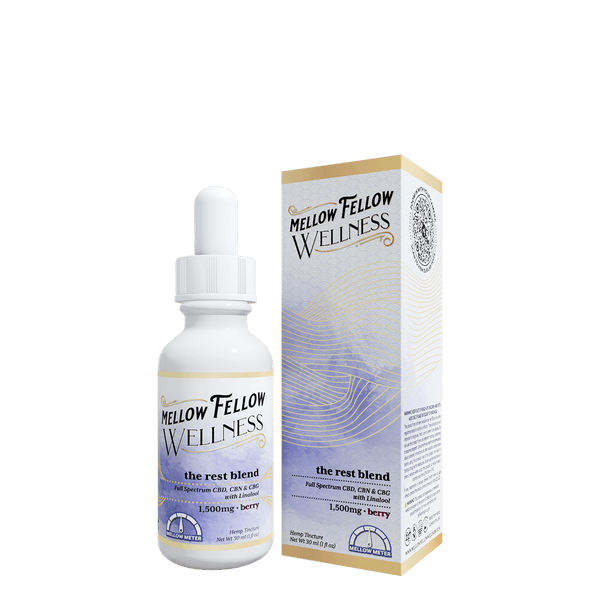
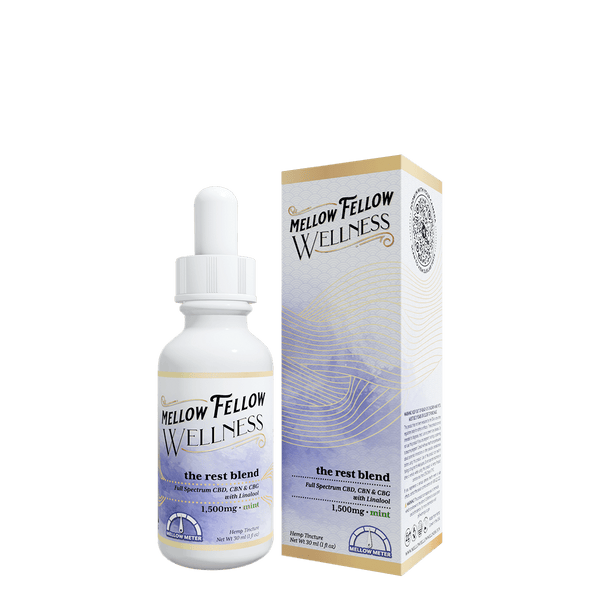
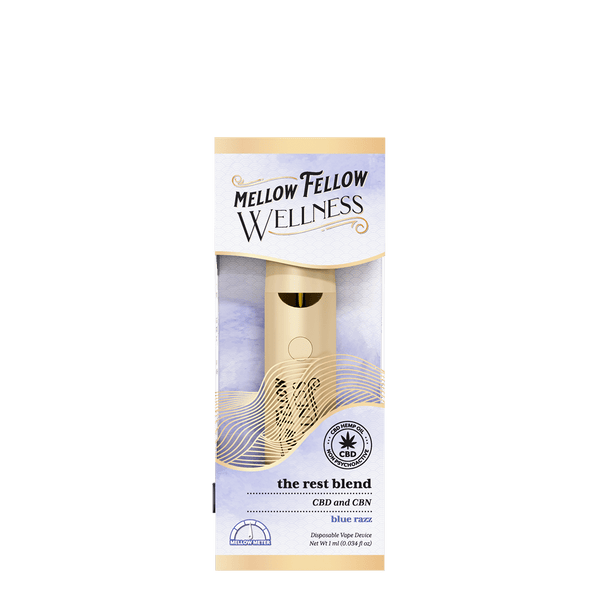
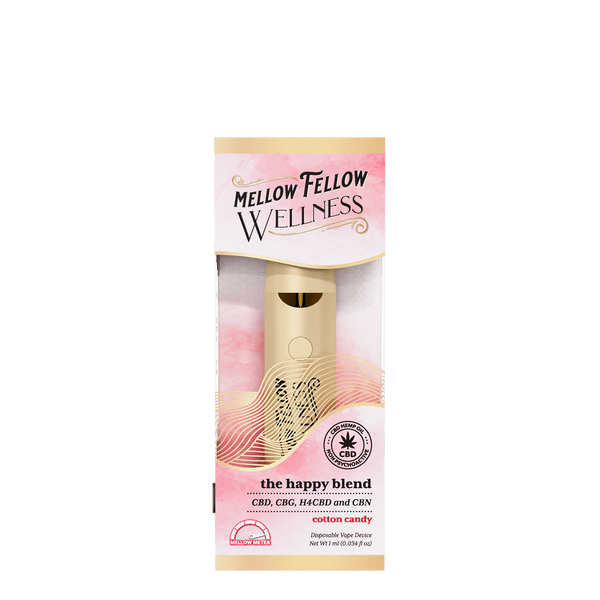
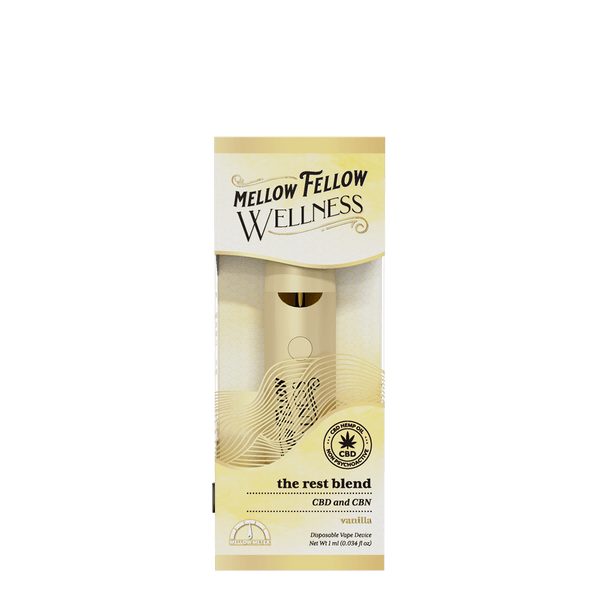
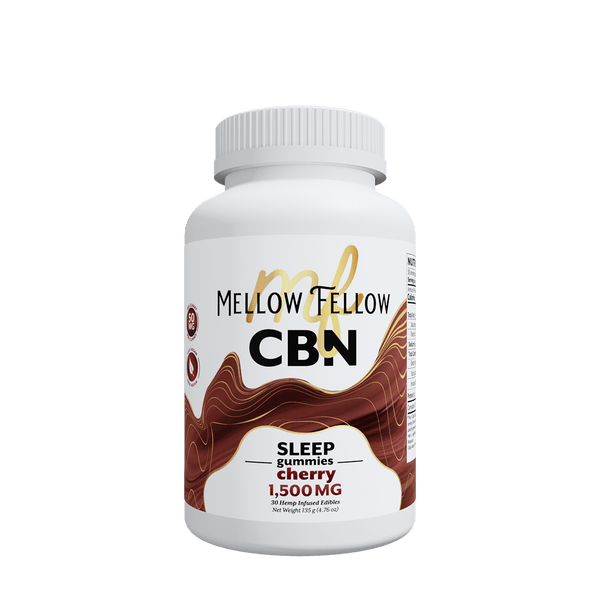










Leave a comment